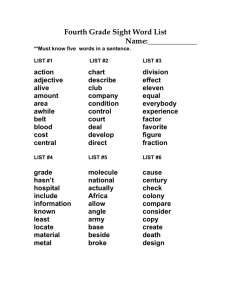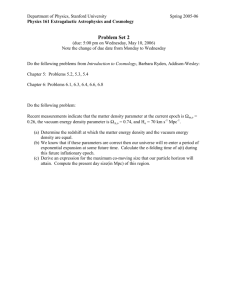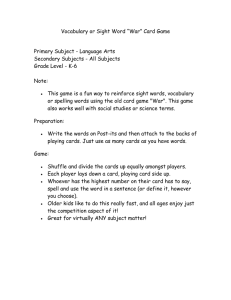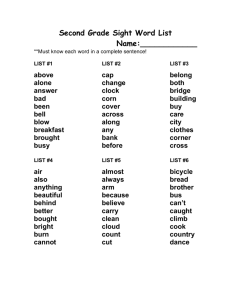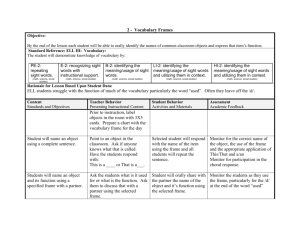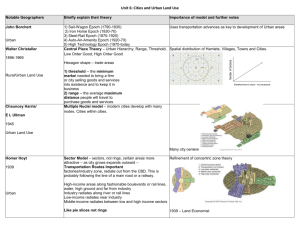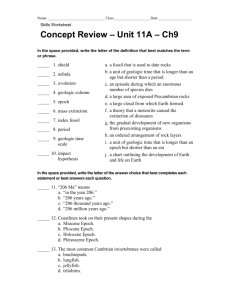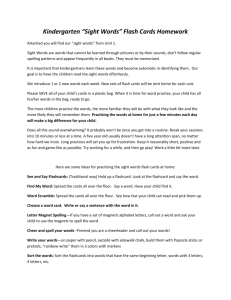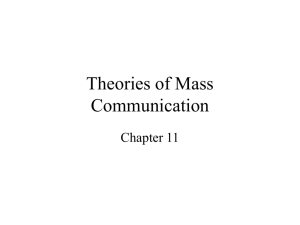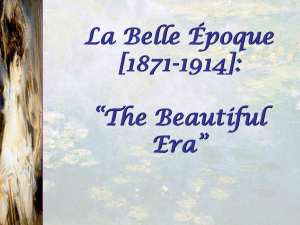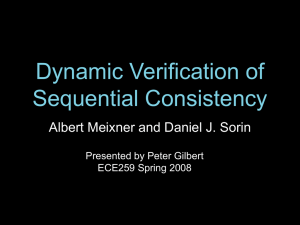Mass Communication
advertisement
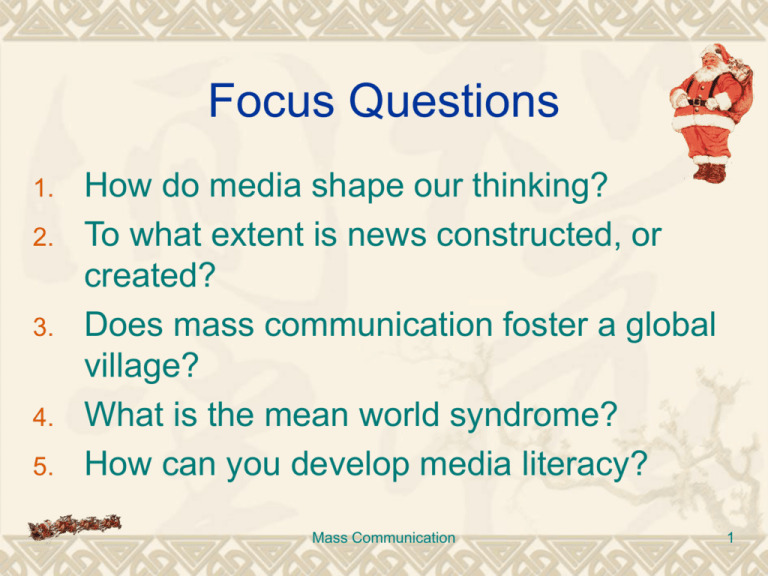
Focus Questions 1. 2. 3. 4. 5. How do media shape our thinking? To what extent is news constructed, or created? Does mass communication foster a global village? What is the mean world syndrome? How can you develop media literacy? Mass Communication 1 Mass Communication Two (three) questions to answer… Understanding Mass Communication Media and Information Media and Entertainment Media vs. Perception Media History Marshall McLuhan: “… the dominant media at any given time in a society strongly shape both individual and collective life.” Four distinct eras Mass Communication 2 Four Eras by Media The Tribal Epoch (Talking – Hearing) Face to face oral communication The Literate Epoch (Alphabet – Sight) Symbols in written form; requires less memory; sight supplants hearing Linear communication; sequential logic The Print Epoch (Book – Sight) Inaugurating industrial revolution (McLuhan, 1962) Mass-produced writing: Homogeneity vs. Fragmented communities The Electronic Epoch (Telegraph – Hearing & Sight) Increased contact via electronic media – “Global Village” Isolated people vs. Personal interaction Mass Communication 3 Functions and Effects Gratification Uses and gratification theory People control & select to gratify themselves (active agent) Agenda Setting Spotlighting (select and call to public attention) Gatekeeper (Lewin, 1947) Cultivation Cultivation theory: Cumulative process Violence, Stereotypes Mainstreaming & Resonance Supporting Dominant Social System Prevailing power relations, perspectives, ideology Mass Communication 4 Challenges for Interacting with Mass Communication Develop Media Literacy Realistically assess media’s influence Become aware of patterns in media Actively interrogate media messages (pp. 343-344: 5 checking questions) Expose yourself to a range of media sources Focus on your motivations for engaging media Respond Actively Assume an active role (resist and redefine the messages of mass media) Mass Communication 5

